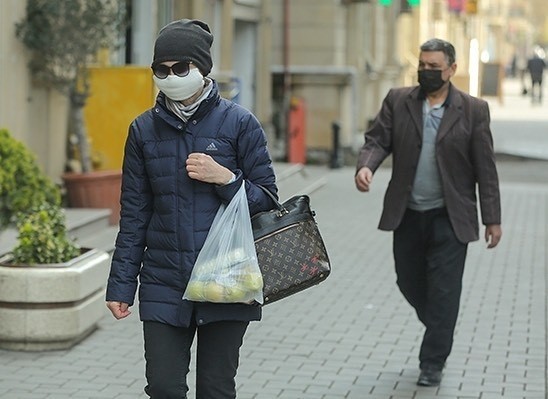[asvc_header_block title=”SMS Permit System” subtitle=”Azerbaijan” header_font_size=”h1″ align=”center” fontsize=”medium” line=”0″]

Azerbaijan has announced a novice SMS Permit System in order to better manage the enforced public self-quarantine measures. Citizens wishing to step outside their quarantined space are required to get prior authorization from the authority, stating their social ID number and the reason for leaving their residence in a text sent to a designated number.
FEATURES
- Citizens are allowed to leave their place of residence only after obtaining permission. In order to obtain permission, citizens must send a free SMS to number 8103 (SMS messages are to be paid for by the state). After sending the text, citizens will then receive a confirmation message granting them permission, which is valid for two hours and can only be issued at a rate of one a day.
- People are allowed to leave their homes for three reasons or “indexes”: to visit the doctor (index one), to visit a pharmacy, shop, bank, or post office (index 2), or to attend the funeral of a relative (index 3).
- Exemption: The requirement does not apply to people over 65 who have been banned from leaving their homes since March 24. Employees of several state agencies are also exempt from the permit; private legal entities and diplomatic missions in Azerbaijan are also granted freedom of movement after registration with a government portal. Residents do not need to obtain SMS permits in cases of emergencies which pose a threat to their health and safety. Neither do they require one when summoned to court or by law enforcement agencies.
- While there is no clear information about fines or other consequences for violating the permit system, it is reported that some residents have been fined 100 AZN (USD60).
ONGOING RESULTS
- With the strict measures on citizens’ movement, Azerbaijani government hopes to curb the COVID-19 outbreak in the country.
Source(s): Eurasianet

